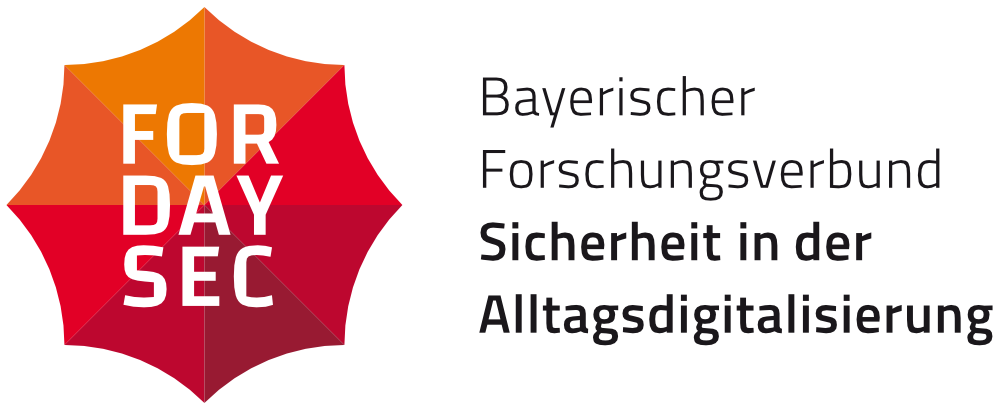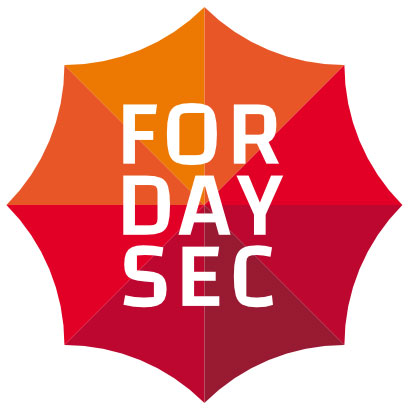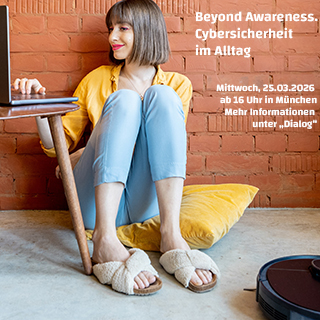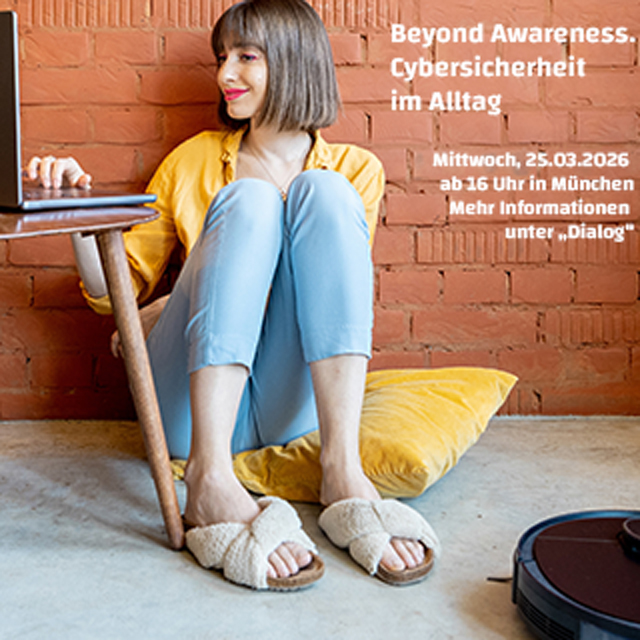ForDaySec in a nutshell…
ForDaySec is an interdisciplinary research association for improving IT security in everyday digital life. The focus is on the development of technologies and solutions suitable for everyday use, with which the opportunities of digitization can be safely exploited in various areas of life and work.
To this end, researchers from computer science, sociology and law from five Bavarian universities are working closely together – with the common goal of providing orientation for people in today’s world.
You can find more information in the FAQ.
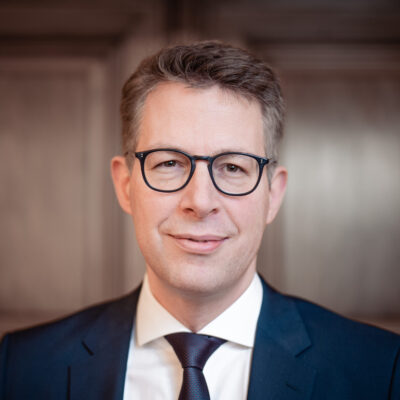
“
Yes to digitization in Bavaria – but safely! Cybersecurity plays a key role for our liberal society: digitization permeates all areas of life. At the same time, the threat of criminal attacks on the digital infrastructure is growing dramatically. In Bavaria, we take the digital signs of the times seriously. Because: cybersecurity is quality of life.
– Markus Blume, Bavarian State Minister for Science and the Arts

“
On behalf of the Munich Security Network (Sicherheitsnetzwerk München e.V.) with its 85 member organizations, I assure you of our support for the joint project ForDaySec. We are happy to be your partner in the implementation of the project. “Security by Design” is an essential building block of a successful cyber risk mitigation strategy.
– Peter Möhring, Managing Director Sicherheitsnetzwerk München e.V.

“
ForDaySec’s project is of considerable interest to the cybersecurity topic platform. Effective, user-friendly, and low-threshold procedures, methods, and tools for secure and confidential communication of networked systems and people in everyday life pose a major challenge. Researching solutions for this addresses a societal need.
– Dr. Robert Couronné, Bayern Innovativ, Head of the Cybersecurity Platform of the Center for Digitalization Bavaria (ZD.B)

“
The interdisciplinary approach of computer science, law and sociology made possible in ForDaySec is very much in line with the requirements that data protection places on large and medium-sized companies alike today in order to contain risks to the fundamental rights of citizens and at the same time to realize innovative products and business ideas.
– Andreas Sachs, Vice President of the Bavarian State Office for Data Protection Supervision
Cross-cutting Issues
Exchange, cooperation, and collaboration across disciplinary boundaries, as envisioned in ForDaySec, needs meaningful common questions to address the complex problem of security in everyday digitization. The ForDaySec research network has therefore set itself four network-wide topics, for which all disciplinary perspectives are necessary.

Dialogue
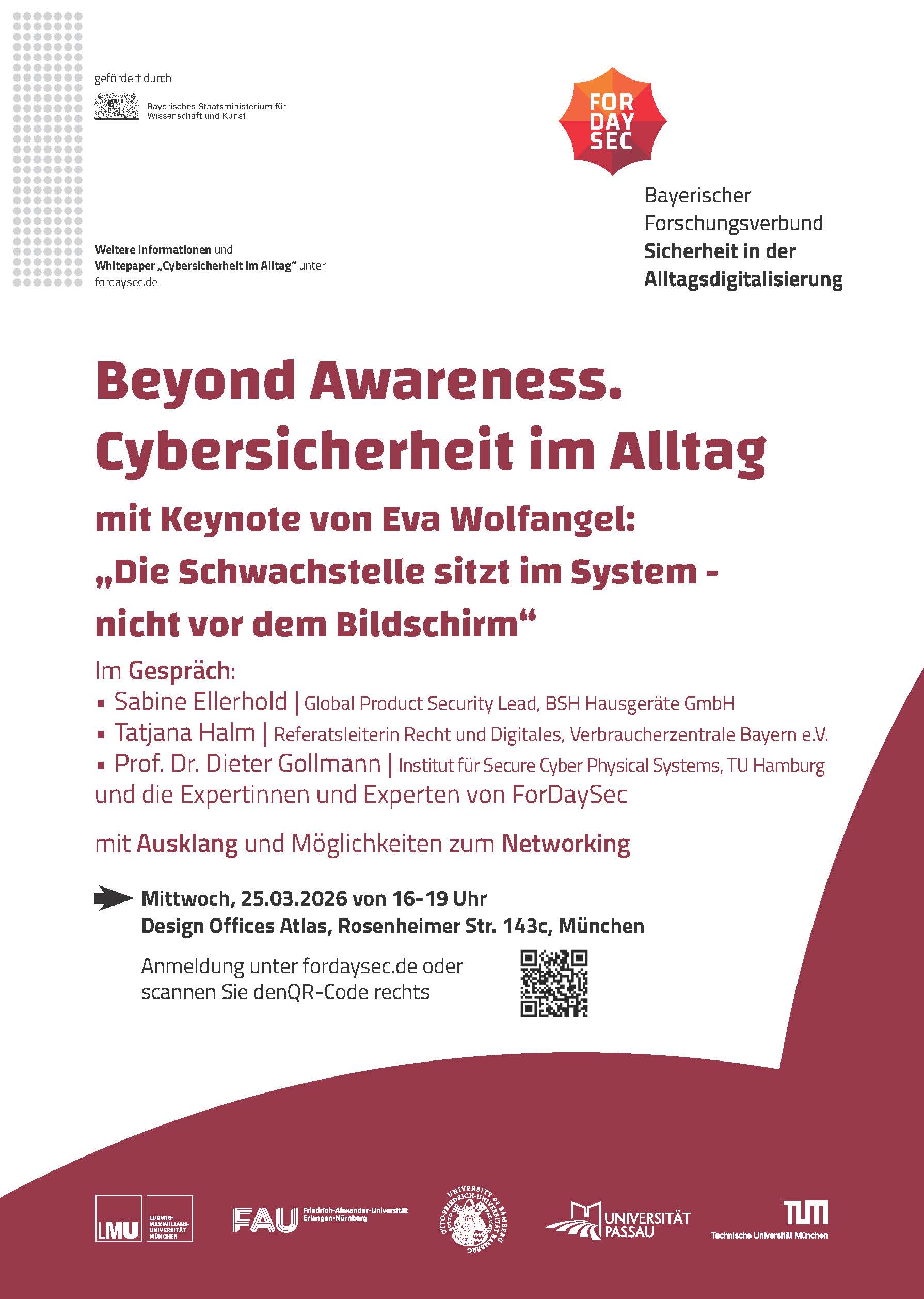
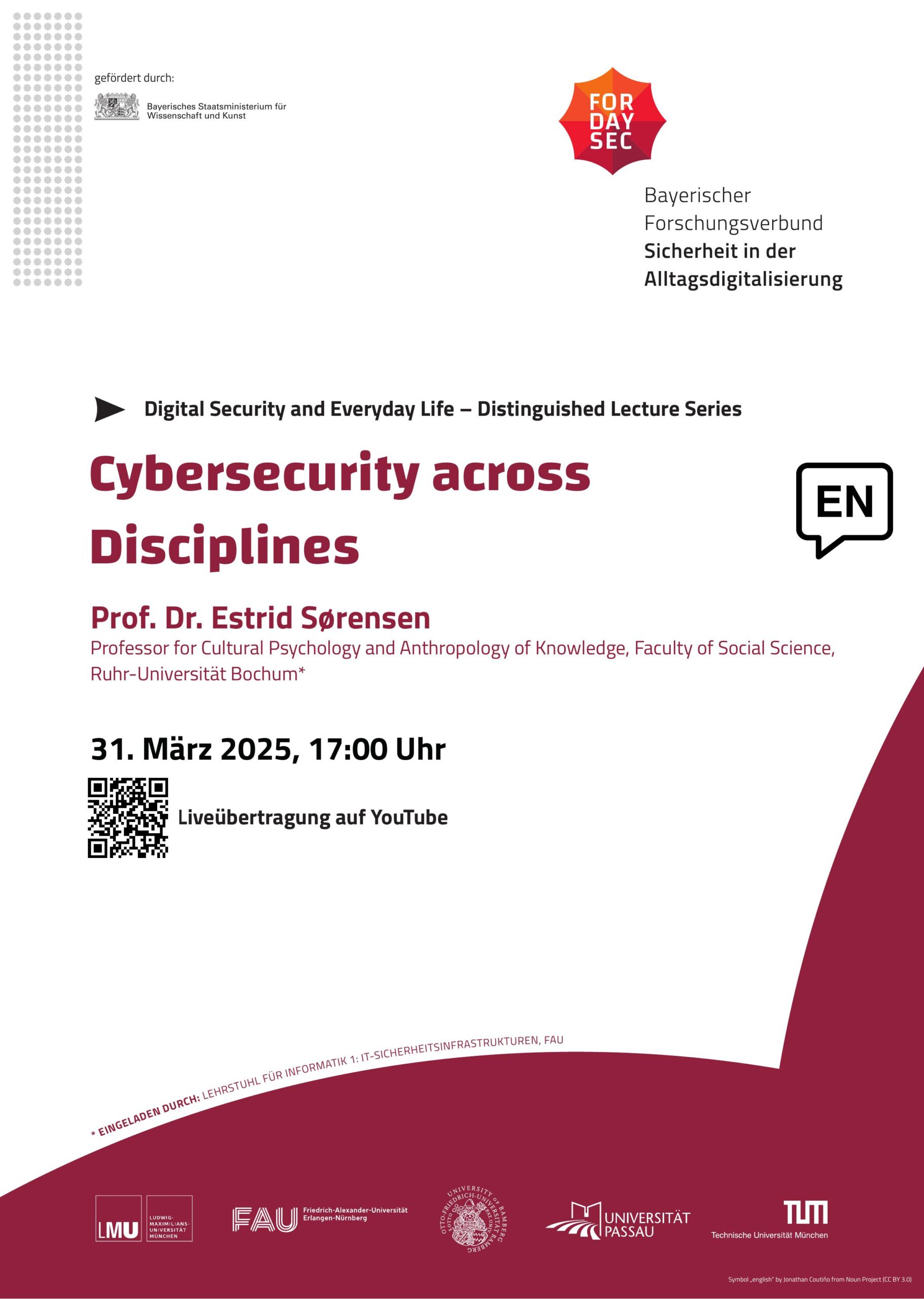
7. March 2025 - Event
Cybersecurity across Disciplines
Scientific data centers and digital infrastructures are fundamental to modern knowledge production. However, their environmental and security implications often remain overlooked. How do data practices shape research, and what impact do they have on global resources such as energy and minerals?
26. February 2024 - Event
ACNS 2025
The 23rd International Conference on Applied Cryptography and Network Security (ACNS 2025) will be held in Munich, Germany on 23-26 June 2025, hosted by Ludwig-Maximilians-Universität München and the Bavarian Research Association “Security in Everyday Digitization” (ForDaySec).
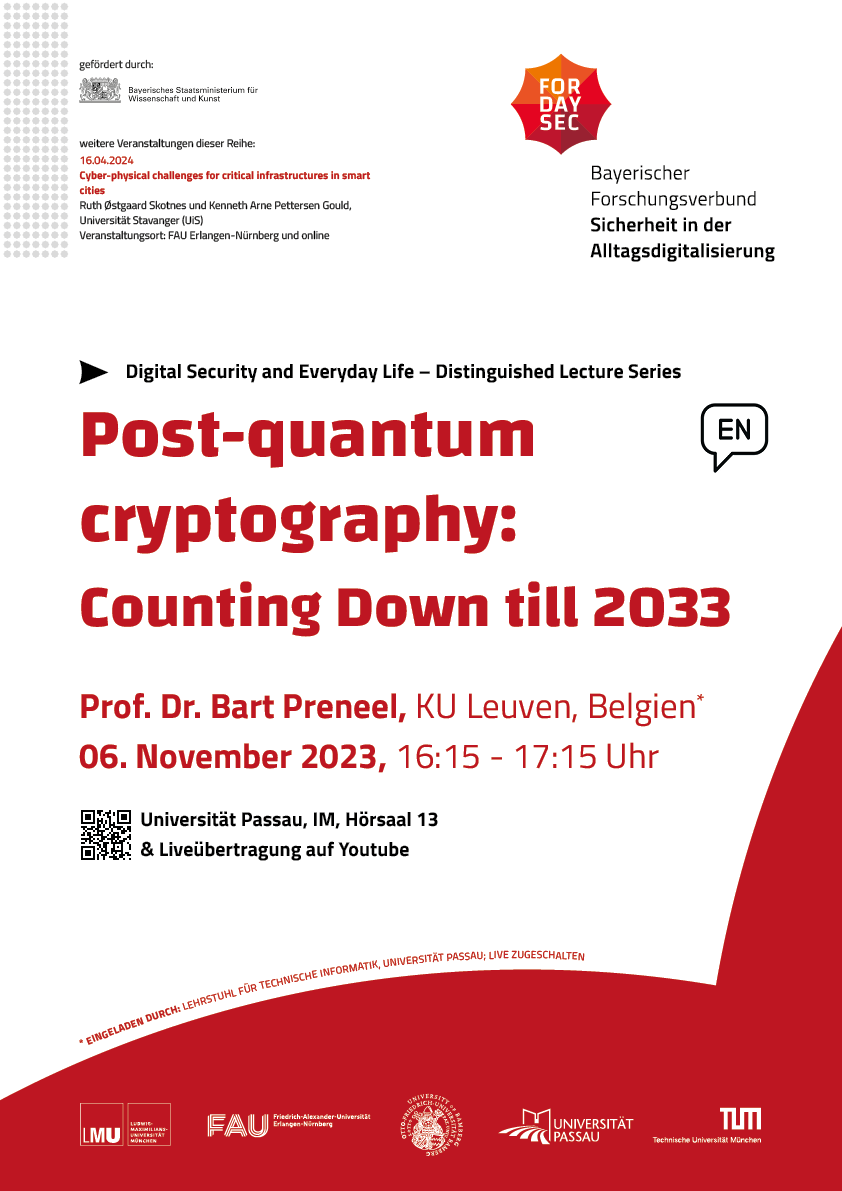
2. November 2023 - Event
Post-quantum cryptography: Counting Down till 2033
For the opening event of our Distinguished Lecture Series: Security in Everyday Digitization, we invited Prof. Dr. Bart Preneel from the KU Leuven in Belgium.
FAQ – QUESTIONS & ANSWERS
What does the Bavarian research association ForDaySec do?
What is the motivation of ForDaySec?
What are the research objectives?
How do I find out about results and solutions?
How can I get in touch with ForDaySec?
Who is behind ForDaySec?
How is ForDaySec funded?
